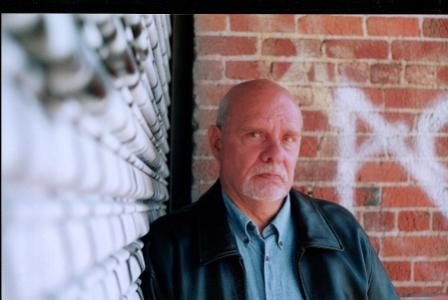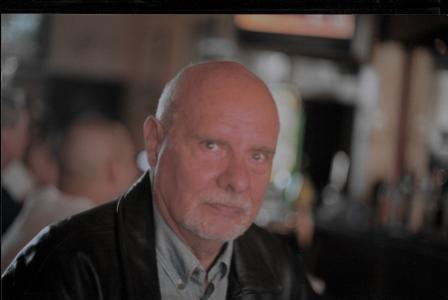Peter Gessner: San Francisco Private Investigator
I’ve been a private detective in San Francisco for nearly twenty years. My cases have ranged from traffic accidents and missing persons to decades-old homicides and complex civil litigation. Each one is a learning curve. There is no single route to becoming a detective. The traditional path to becoming a private detective used to be from law enforcement, but some of the best investigators I know come from careers as booksellers, journalists, roofers, and cab drivers.
Yes, there are courses you see in the throwaway weeklies promising to make you into a private eye, but I think you’re better off taking criminal justice or legal secretarial courses at a good community college. The best scenario, if you’re lucky, as I was, you find someone to hire and mentor you.
How do private eyes approach a case in real life? A well-known San Francisco detective who handled high-profile cases told me there are two kinds of detectives: those who meticulously arrange the facts and draw conclusions and those who sift the facts intuitively. He turned to me – I was working for him at the time – to ask which one I was. I told him I wasn’t sure. Now, years later, I think I should have said I wanted to be both.
Which brings me to the notion that a good detective can’t specialize, that he or she has to be able to do it all: interview people, knock on doors, use the computer, and write reports that make the reader/client “see” people and places he or she will never know in reality. Of course, there are “specialists,” the PI’s that do just accident reconstruction or surveillance, and that’s certainly ok. But if you’re a single practitioner like me, you have to be able to take whatever comes in the door. And do it with a high standard of care.
Take one example; surveillance. There are manuals dealing with it. I remember reading one put together by the FBI which laid out the three-car, radio connected (this was before cell phones) paradigm, moving along parallel streets and switching positions so the subject never sees one car for any extended period. Perfect for the government, but generally well beyond the budget of a private eye.
One very famous female San Francisco private investigator told me she learned how to follow people by watching the “Rockford Files” – the best-written depictions of a private eye eve on television or in the movies. Remember how in that show whenever he went into an office, James Garner collected business cards that he would later use himself? Private investigators do that. I learned a few years ago that there is now a computer program called “Rockford” which allows you to print up your own cards. Life, in America, will always imitate art.
In real life, following someone in a car is not easy. Traffic, red lights, and the unexpected can be expected to intervene. In a split second, you have to decide to go through the light and risk a) a ticket or b) my life? Remember, the PI has no cover of “legal necessity.” You are out there, Willy Loman-like, with only a smile and sunshine. This applies also to getting people to talk to you. Simply put, they don’t have to. And usually it is not in their interest to do so. Of course, no one has to talk to the police either, and if you’re arrested, it would be wise not to. But the behind the shield is the weight of the state and people talk.
People often ask if I carry a gun. I do not. I think if you do you’ve already made the decision to use it, and I’m not comfortable with that. Only once, when I was working for another detective agency, did it become an issue. The case involved a man-the brother of a well-known TV actress-whose male lover had threatened him with a gun and stolen his car; the task was to make sure the angry lover wasn’t there waiting for him.
I got the assignment to go into the apartment. The head of our agency asked if I wanted a gun. I declined. We’ve all seen the scene in the movies: the detective or cop enters an apartment he’s never been in and expertly moves from room to room like Barishnikov. I had the key from management, but I had no idea what the layout was. I went from room to room, terrified. I yelled out: “Federal Express delivery!” several times, and got no response. The bathroom was the last door. The shower curtain was drawn. Sucking in my breath, I swept it back. I stood facing the hard glare of ceramic tiles. Nothing more. Nothing less.
Peter Gessner is a licensed private investigator living in San Francisco. Prior to becoming an investigator, he was an award-winning documentary filmmaker. His first novel “The Big Hello and the Long Goodbye” was published in 2007. He is presently working on a sequel. More information available at: http://www.petergessner.com/
* Tomorrow – Author/police lieutenant Monty McCord






Mr. Gessner,
thank you so much that was exactly the answer i needed, now i won’t make the mistake of using a badge for my hero. i appreciate your fast response and you can go ahead and ignore the email i sent to you regarding the issue. i wasn’t sure if you still checked this comment section so i sent you an email also. thanks again.
Kayla
Hi there, Goddess. In California, the regulations governing licensed PI’s in California specifically forbid the use of badges. Instead, we have credit-card style photo ID’s issued by the state. Hope this helps.
Hi Mr. Gessner,
I am currently writing a romance novel featuring my hero as a PI in CA. My question is whether or not Private Investigators have badges and if they don’t what do they use to identify themselves to people? Just a simple business card or something else? thanks so much for help in advance.
Kayla
Thank you, Donnell. I hope you and others enjoy the book.
Hi, Mr. Gessner, I would think being a private eye keeps you constantly in touch with your muse. You had me going at the end. You sucked in a breath, drew back the shower curtain to face the hard glare…. very cool. I’ll have to check out The Big Hello and the Long Goodbye. Great titles and nice tie ins. Thanks for being here!
I can’t say how many PI’s started out as insurance investigators. Some get hired by companies to look into possible insurance fraud by a policy holder. I usually find myself on the other side of the street, working for clients who are suing insurance companies for not doing what they promised they’d do.
I think many insurance companies have their own in house “investigators,” but when they need someone who might have to testify in court they would use private investigators.
This touches on the Hired Gun issue. The other side in a case (and not just insurance matters) is always going to claim the PI can’t be objective because he’s being paid. A good PI should respond that he is being compensated for his time, not for his opinions.
Just to let people know I’ll be away from the computer until around 10:30 PST and here for the rest of the day to take more questions.
Hi, Peter.
I never really watchd the Rockford Files, but I did find it interesting to know you thought it was the most realistic depiction of your profession. So many are not, I’m sure.
Do a lot of PI’s get their start as insurance investigators? Do most insurance companies have their own investigators, or do they hire private detectives as the need arises?
A motorbike would probably work well in cities, not on freeways (too conspicious). A fellow PI I know packs roller skates for some surveillance he does….He also brings his dog on a leash.
Good morning to all of you. As Lee said, I’m in the Pacific time zone. I’ll be here for the next hour or so, then I have an appointment, but should be around for the rest of the day and would be happy to respond to your questions or thoughts.
Regarding SweetieZ’s question about traffic accidents, it is like other cases in the sense you have to break it down into its smallest pieces: what happened and in what sequence? You start with the police report (if there is one), you go to the scene, take pictureres, make drawings, and then you interview witnesses, usually in person and unannounced. As for surveillance, these days I only do it when it is part of a larger case (like child custody matters, when you need to observe how an adult interacts with a child)….
I hope to pop in today. We are short handed at work. But for in the city, did you ever use a motorbike ?
Thanks for sharing — I always wondered about following someone with a car. I guess in a suburban area, it might seem conspicuous. I’ve thought about that as I’ve driven from Orlando to South Florida, and given the nature of the highway system, it’s common to see the same vehicles both on the road and at the rest stops. I suppose if one of them was still nearby when I drove into the hotel, I might wonder …nah, I’d probably assume he/she was going to the same conference I was.
(And Lee, around here if you say, “West Coast” it means places like Tampa / St. Pete) Even though I lived in Miami for 13 years, I could never get used to the sun rising over the ocean instead of setting the way it did when I was in Santa Monica.
Just a reminder, folks. Peter is on the West Coast, so it may be a little while before he responds.
Good morning,
Glad to know there is another early bird in the city. I have missed so much this week.
What do you investigate on a traffic accident ? Seems odd. What is the percentage of time on most cases you spend on just surviellance ?
TY
SZ
Thanks for the glimpse into the life of a PI. Very interesting! One of our officer’s dad is a private investigator. I’ve never asked him what kind of investigations he handles. I know he does background checks because he’s come into the station to get info, but I’m not sure what else he does. Hey, maybe he’d hire me if I get tired of typing police reports!